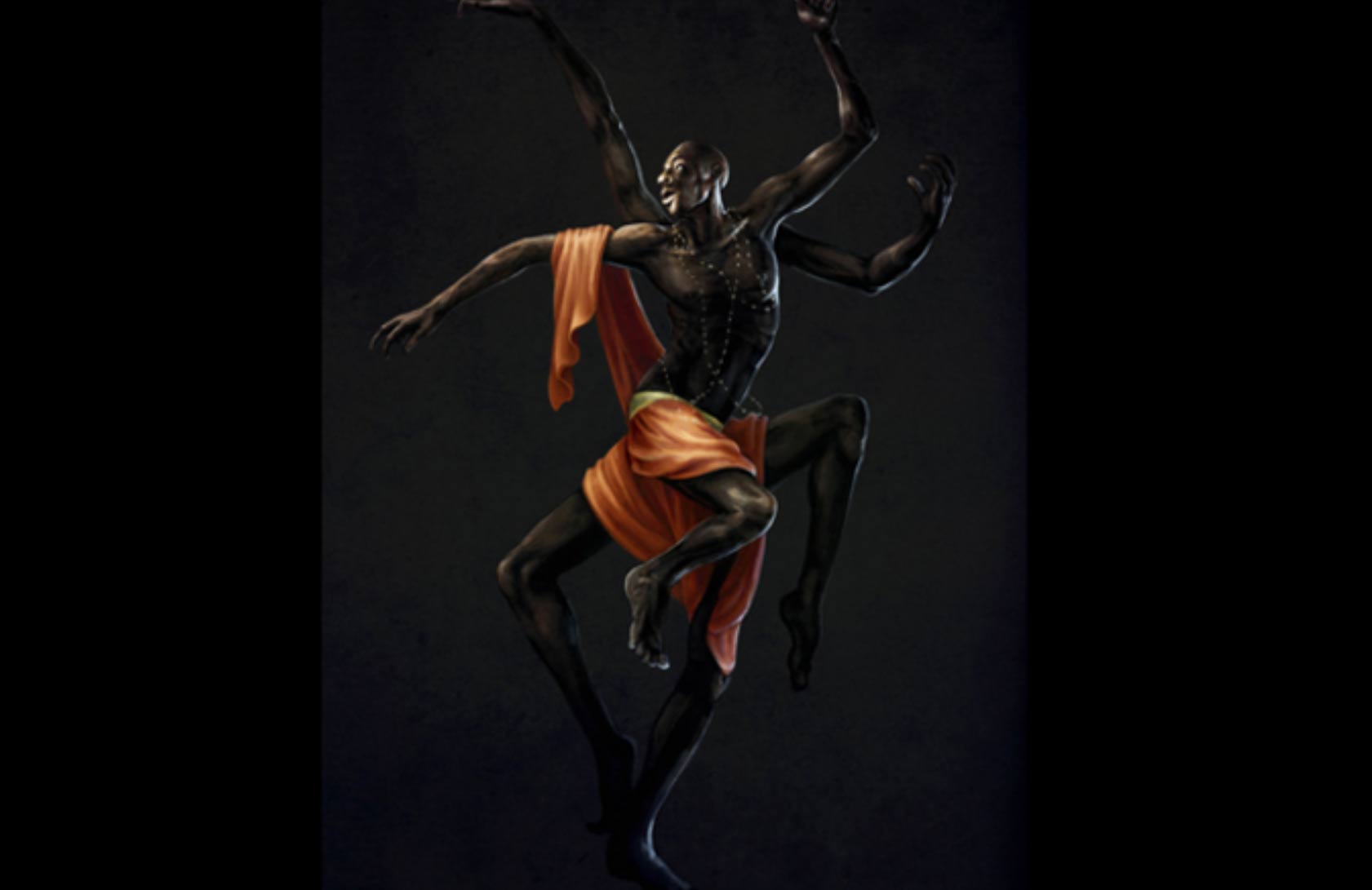The Yoruba’s in Southwestern Nigeria believe that there is something quite supernatural about the existence of twins. In the earlier centuries, while most tribes in Nigeria massacred millions of twins; taking them to be demonic or evil, the Yoruba’s on the other hand, revered twins.
Why? Well, in Yoruba culture, twins are believed to be magical and are earthly representations of an Orisa - spirits sent by the Supreme Being to assist humanity. This Orisa, named Ibeji, is believed to have the powers of fertility and prosperity and is specially protected by the God of thunder, Sango. Just like twins, the Ibeji is also two individuals who according to Yoruba spirituality share a single soul. Due to this belief, the Yoruba’s also call twins – ‘Ejire’ meaning ‘double rhyme’ or to be more exact, ‘two persons that rhyme with each other’, ‘two persons that are the same’. Also, the name Ibeji literally translates to ‘double birth’ which in recent times is also taken to mean ‘double blessings’.
There are many tales to the origin of the Ibeji myth; however one forever holds center stage. In the myth, Yemoja, a beautiful goddess gave birth to twins, children she loved with all her heart. However as mythical stories are prone to be, one of them died quite tragically and Yemoja was inconsolable. Full of profound love and longing, she crafted with her bare hands a wooden statue of the departed child and by magic and divine intervention, the wooden replica came to life in her hands; her child returned to her and was united, once again, with its twin. It was from this story that the Ibeji myth came to be.
Till this day, if a twin should die in a traditional Yoruba household, leaving his or her soul sibling behind, a replica of the twin is created in the form of brass or wood. This replica is called Ere Ibeji.

It is usually created by an Ifa, a spiritual priest or diviner. This replica is bathed, fed and clothed like a human being. The family in doing thus, believes that somewhere in the spirit world, a spiritual mother just as kind as the Goddess, Yemoja, is doing the same to their departed child. They also believe that the death of a twin represents bad luck in the family. Therefore they ritually offer food offerings and care for the carved image in order to prevent bad fortune.
Another unique tidbit of the Yoruba culture is the manner in which their twin children are named. In every Yoruba household, twins are given the name; Taiwo and Kehinde; Taiwo being the first to see the world and Kehinde being the second to come out of the womb. However, the Yoruba’s see things a little differently. Following their beliefs, everyone once existed in a spiritual world called Egbe. It is believed that in this spiritual world of the unborn, you have existed with your family and had relationships even before you came into the world. In the case of the Ibeji (twin), while they existed in the spiritual world, Kehinde was actually the first born and not Taiwo. The story goes that at the point of birth, Kehinde sent the younger sibling, Taiwo, to go first into the physical world so as to have a taste of it and then report back to Kehinde. Kehinde did this so he would know what to expect as he was coming into the physical world.
The myths, beliefs and reverence that surround twins (Ibeji’s) in the Yoruba land are surplus. Their love for twins clearly can’t be denied. The birth of twins in a household is a cause for joy and celebration, much more celebration than you would find for a single child. In fact, for the
Yoruba’s, twins are considered the royalty of children. The joy of a mother of twins can’t be quantified because to her, that title “Iya Ibeji” means much more than its literal meaning. It doesn’t just mean mother of twins but the mother of good fortune, the mother of prosperity, mother of fertility, most special to the Supreme being, just like the goddess Yemoja herself.
There are countless Taiwo’s and Kehinde’s amongst the Yoruba’s of Nigeria and even in parts of Benin republic and Togo. For a tribe that practically worships twins, it is no wonder that they seem to have a lot of twin births. Perhaps it is their love for twins that makes their existence quite common in their culture. One might even speculate that the supreme being of the Yoruba’s, Olodumare, is quite pleased with his people. He must have seen how much His people loved twin children and decided to bless His subjects with them.
An instance of the abundance of twins in Yoruba land is the town of Igbo- Ora; a town located in Oyo, a Southwestern state in Nigeria. Imagine walking down a town road and seeing countless faces of identical children, most in pairs and even triplets; well that’s Igbo-Ora for you. So much so that the town was dubbed “The Twin Capital of West Africa”. Their title is also acknowledged on their entry signboard where it says, ‘The Nations Home of Twins”.

In an interview with Euronews Culture, a local chief from Igbo-Ora admitted that “Nearly every family here has twins or multiple births” There have been many speculations as to why there are
so many twins in this town. Many women attribute this phenomenon to their feeding habits. Some say it is the Okra they add to their soups and stews, many say it is the yam they eat or the most beloved Amala delicacy. Science might say it is genetics. But whatever it might be, it doesn’t matter to the lucky family of twins. What matters most is that they are blessed with twin children and those children will definitely be showered with so much love and attention as deserving royalty. You might even say that these children will be worshipped and the loving parents will forever thank Olodumare for their blessings.
References
Theo, Farrant. “Culture: Nigeria City celebrates its abundance of twins with annual festival.” Euronews.culture. Accessed July 31, 2023. Euronews.com.
Bello, Tayo. “Ibeji: Taiwo and Kehinde.” Bio inspiration. Accessed July 5, 2023. Tiktok.com.
Petrou, Peter. “Nigeria, Yoruba Peoples: Ere Ibeji.” World within Worlds. Accessed July 31, 2023. Sothebys.com
A 27 year old Yoruba male.
Join the Oriire Community
Become a free member to get the monthly roundup, unlock more challenges, comment on articles and bookmark your favourites





















Share
0 Comments